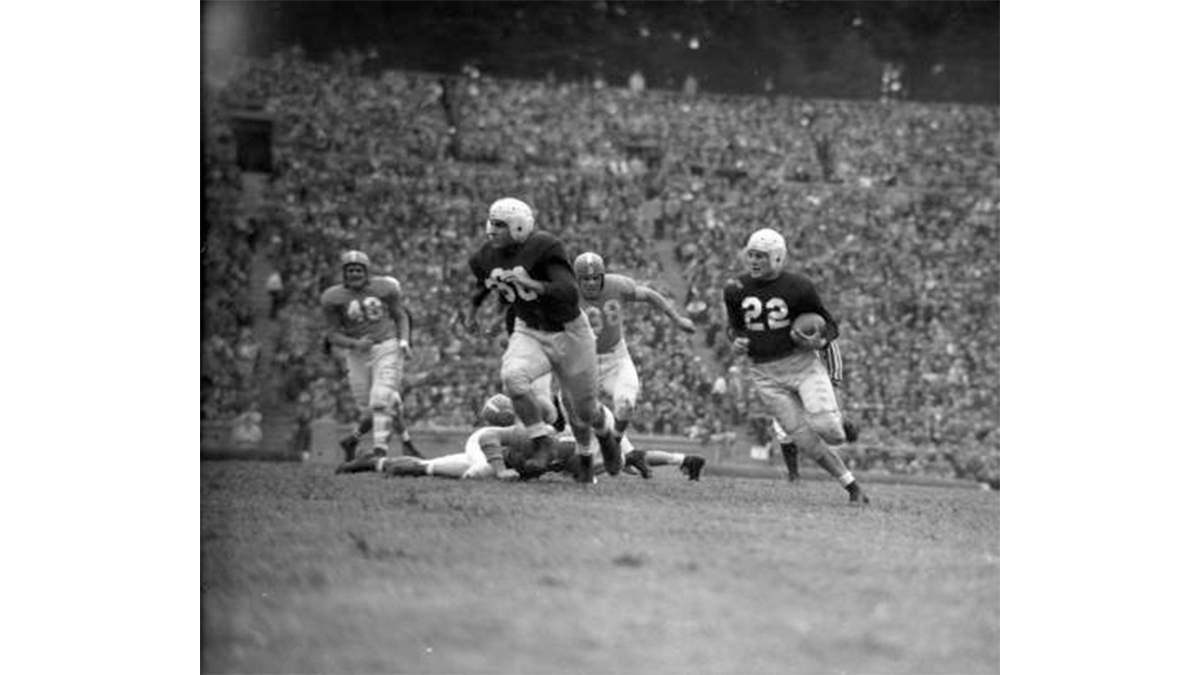225 years of Tar Heels: Charlie “Choo Choo” Justice
The first athlete named to the North Carolina Sports Hall of Fame, Charlie Justice's football career has inspired generations of North Carolina athletes.

 Editor’s note: In honor of the University’s 225th anniversary, we will be sharing profiles throughout the academic year of some of the many Tar Heels who have left their heelprint on the campus, their communities, the state, the nation and the world.
Editor’s note: In honor of the University’s 225th anniversary, we will be sharing profiles throughout the academic year of some of the many Tar Heels who have left their heelprint on the campus, their communities, the state, the nation and the world.
Throughout the country during the late 1940s, legendary football player Charlie “Choo Choo” Justice established a benchmark for superstar status.
His impact on Carolina football was so great that the 1946-49 seasons became known as the “Justice Era,” which remains one of the most exciting times in Carolina football’s history.
Justice led the Tar Heels to 39 wins — including four straight wins over Duke — and appearances in three major bowl games. He was a two-time All-America selection in 1948 and 1949, and finished as runner-up for the Heisman Trophy in both of those years. A tailback for coach Carl Snavely, Justice set Carolina’s record for total offense with 4,883 yards, a record he held for 45 years before being passed in 1994 by Jason Stanicek.
Before coming to Carolina, the Asheville native served in the Navy for four years during World War II. Playing on the football team at Bainbridge Naval Center, Justice acquired the nickname “Choo Choo” because he ran along just like a train.
The first athlete named to the North Carolina Sports Hall of Fame, Justice has inspired generations of athletes, especially Tar Heel football players. He was also the inspiration for the song, “All the Way Choo Choo,” Orville Campbell’s tribute to Justice’s talents on the football field.
Justice later played professionally for the Washington Redskins and was honored as one of their all-time greatest players during a ceremony in 2002, one year before his death in 2003.
At Carolina and beyond, Justice’s legacy lives on. He remains a hero to many, and you can even find the original sheet music for “All the Way Choo Choo” at the Smithsonian’s National Museum of American History.




